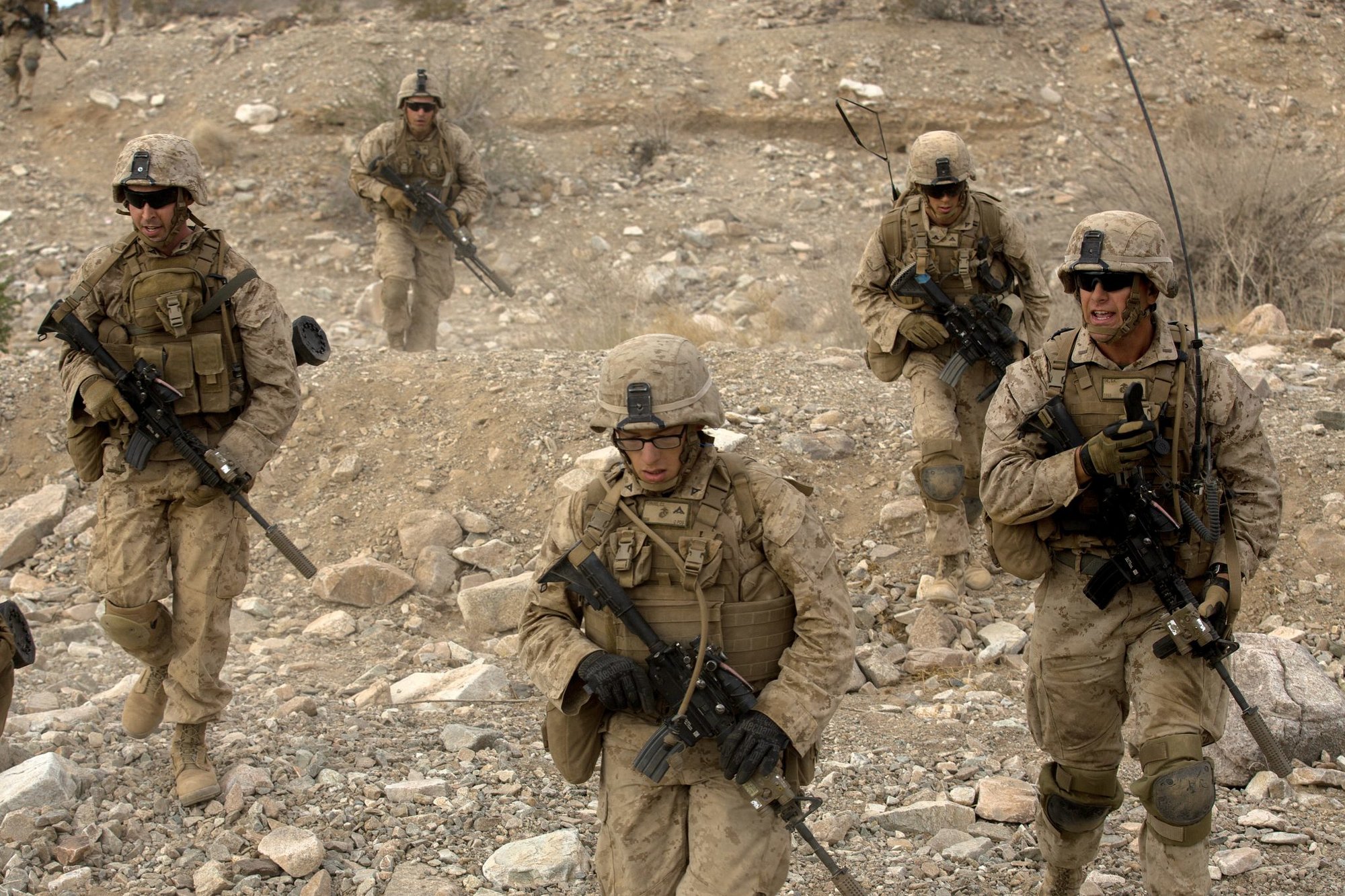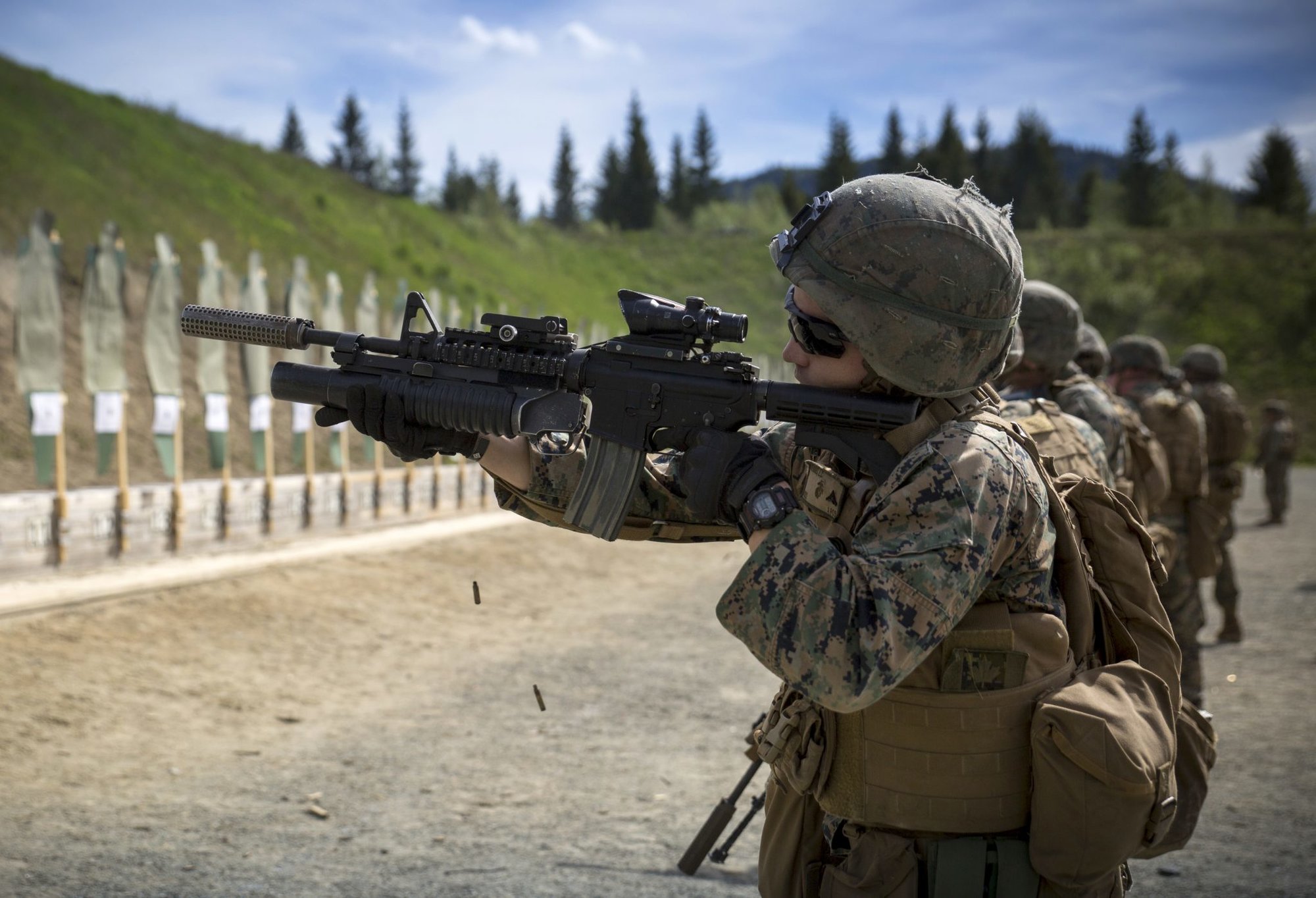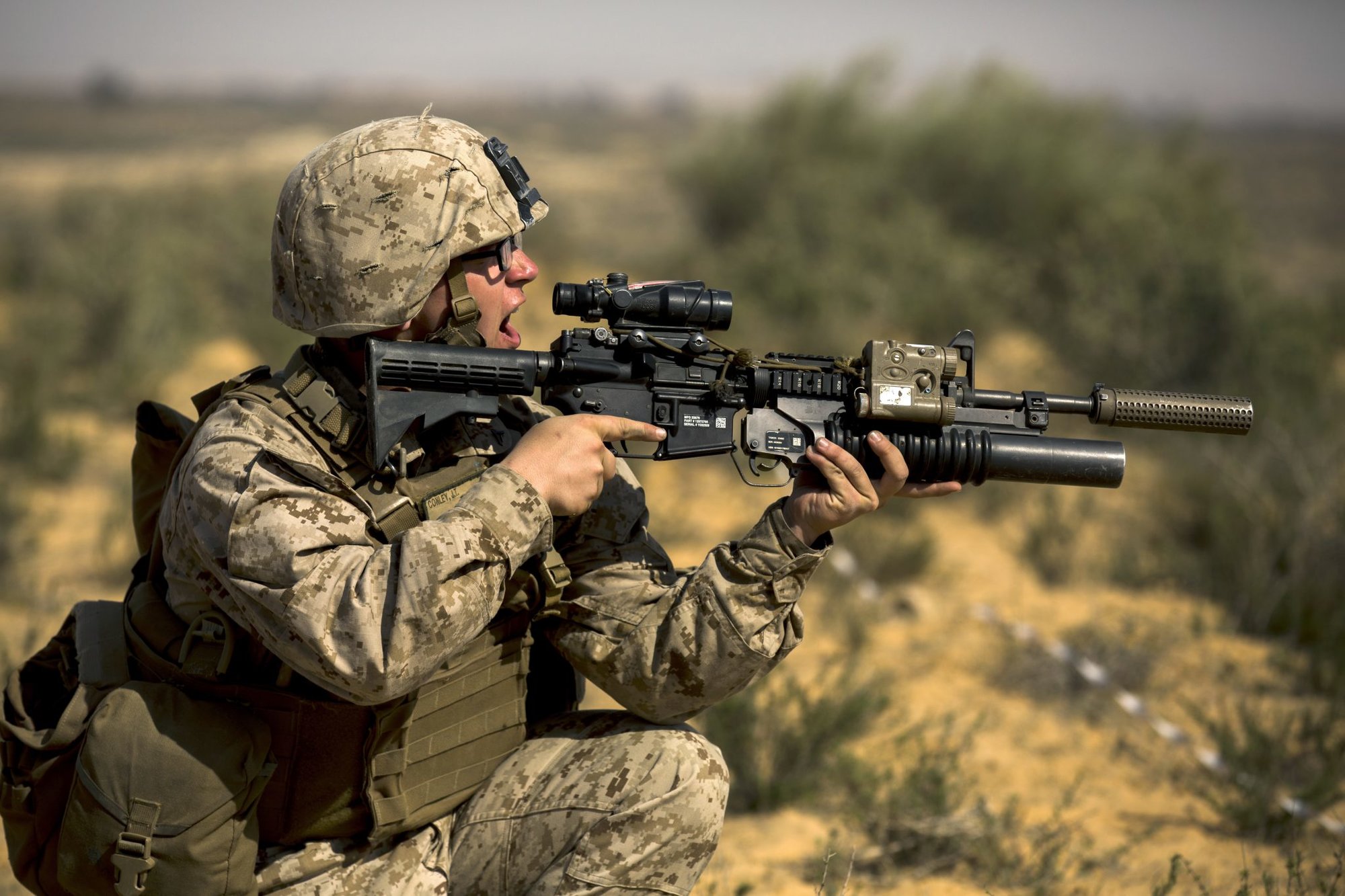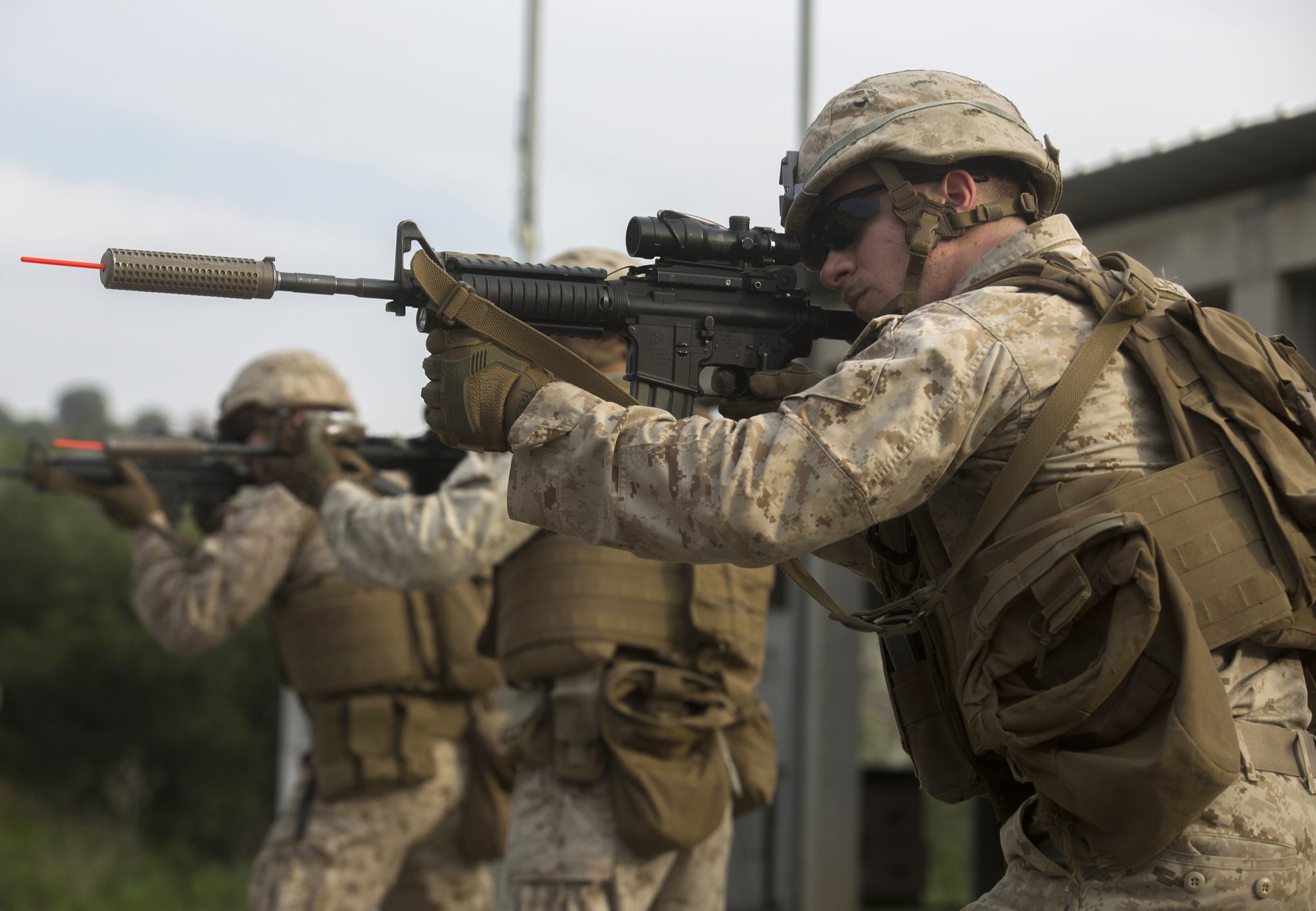
U.S. Marines with Bravo Company, 1st Battalion, 2nd Marine Regiment utilize suppressors while conducting company attacks on range 400 in Twentynine Palms, Calif., Oct. 23, 2016. The Marines of B. Co are the first in the Marines Corps to use the suppressors, demonstrating the capabilities on platoon and company attack ranges during Integrated Training Exercise (ITX) 1-17, in preparation for a Special Purpose Marine Air-Ground Task Force deployment. (U.S. Marine Corps photo by Sarah N. Petrock, 2d MARDIV Combat Camera)
This article was originally published Nov. 3, 2020, on Sandboxx News. Follow Sandboxx News on Instagram.
Starting in December, the Marine Corps began issuing thousands of rifle suppressors to its infantry, reconnaissance, and special operations units.
In total, by 2023, the Marine Corps will issue approximately 30,000 suppressors made by the Knight’s Armament Company for its M4 and M4A1 rifles and M27 Infantry Automatic Rifles, all of which are chambered with the 5.56 NATO cartridge.

Suppressors minimize—but don’t completely eradicate—noise and also help reduce the muzzle flash and recoil.
Recon Marines and Marine Raiders have already been using suppressors for years. But the widespread introduction of suppressors to line infantry companies is novel.
Everything began in 2016 when a Marine infantry battalion used suppressors during a warfighting exercise. The feedback from that was very positive, and the Marine Corps began searching for the best way to implement suppressors on a largescale level.
According to Chief Warrant Officer 4 David Tomlinson, the Marine Corps System Command’s infantry weapons officer, the addition of suppressors will foster better communications between troops in the squad and platoon level as the overall noise will be much less.

“As I travel and brief units, this capability has generated the most interest—from lance corporals to colonels,” CWO4 Tomlinson added. “There has been an overwhelming excitement to receiving the suppressors, which we anticipate will serve as an effective capability for the warfighter.”
Here is (now retired) Chief Warrant Officer 5 Christian P. Wade, the division gunner of the
2nd Marine Division, discussing suppressors and expelling some common misconceptions.
Marine Corps Systems Command is the Corps’ acquisition command. Comprised of Marines, Sailors, and civilians, the MCSC is head of contracting authority and exercising technical authority for all ground weapon and information technology programs.

But although the widespread introduction of suppressors to frontline units is mainly about combat effectiveness and better communication on the battlefield, there is another aspect to the change. Close proximity to gunshots and explosions takes a toll on the body even with ear protection. Hearing loss or tinnitus (a constant ringing in the ears) are fairly common to veterans. The introduction of suppressors aims to improve the long-term quality of life of Marines.
“In the big picture, the VA pays out a lot in hearing loss claims,” said Major Mike Brisker, a weapons product manager in the MCSC’s Program Manager for Infantry Weapons, in a press release. “We’d like Marines to be able to continue to hear for many years even after they leave the service. These suppressors have that benefit as well.”

Coffee or Die is Black Rifle Coffee Company’s online lifestyle magazine. Launched in June 2018, the magazine covers a variety of topics that generally focus on the people, places, or things that are interesting, entertaining, or informative to America’s coffee drinkers — often going to dangerous or austere locations to report those stories.
BRCC and Bad Moon Print Press team up for an exclusive, limited-edition T-shirt design!
BRCC partners with Team Room Design for an exclusive T-shirt release!
Thirty Seconds Out has partnered with BRCC for an exclusive shirt design invoking the God of Winter.
Lucas O'Hara of Grizzly Forge has teamed up with BRCC for a badass, exclusive Shirt Club T-shirt design featuring his most popular knife and tiomahawk.
Coffee or Die sits down with one of the graphic designers behind Black Rifle Coffee's signature look and vibe.
Biden will award the Medal of Honor to a Vietnam War Army helicopter pilot who risked his life to save a reconnaissance team from almost certain death.
Ever wonder how much Jack Mandaville would f*ck sh*t up if he went back in time? The American Revolution didn't even see him coming.
A nearly 200-year-old West Point time capsule that at first appeared to yield little more than dust contains hidden treasure, the US Military Academy said.












